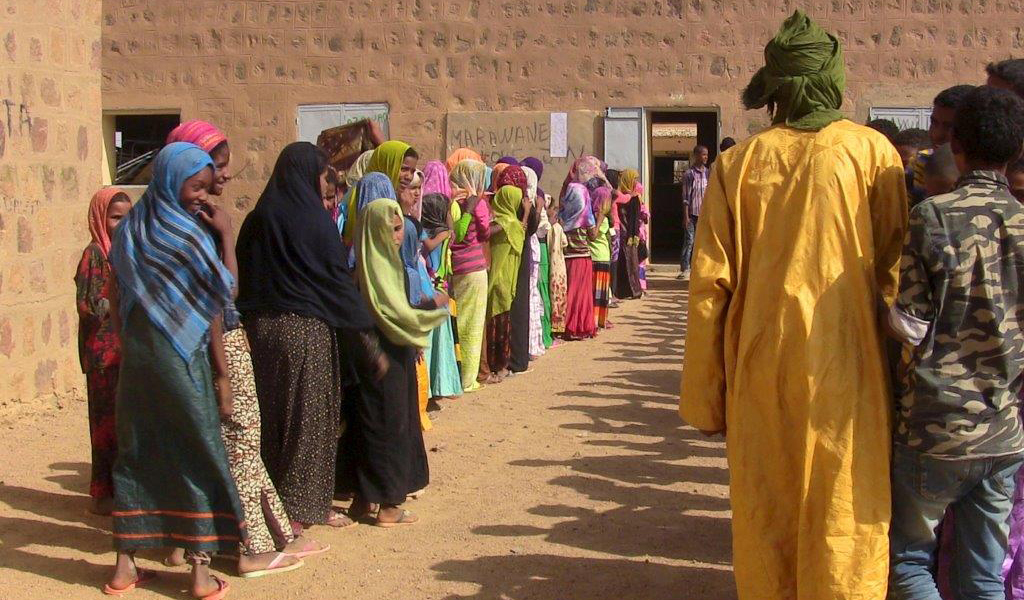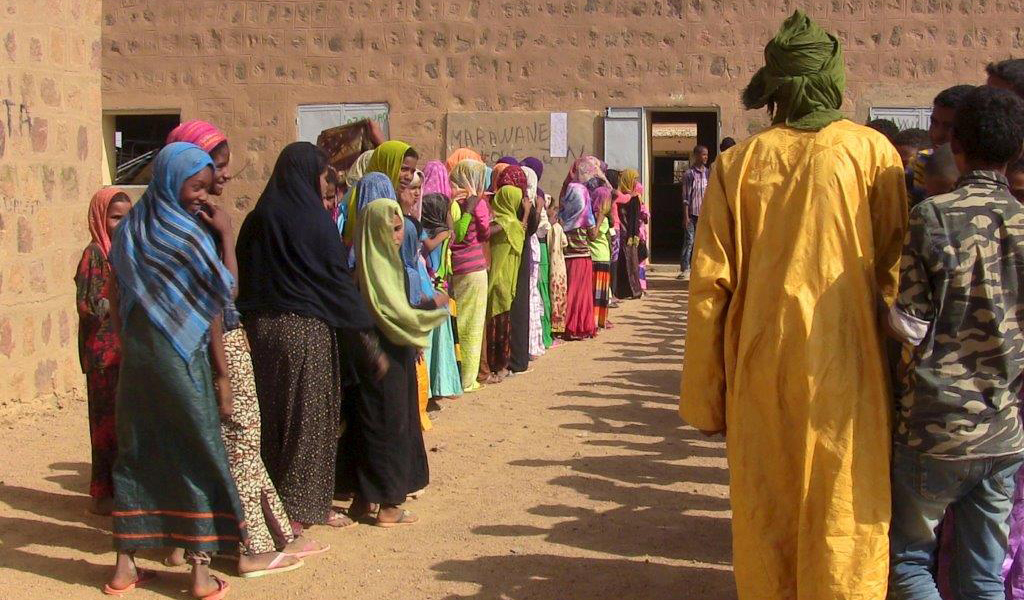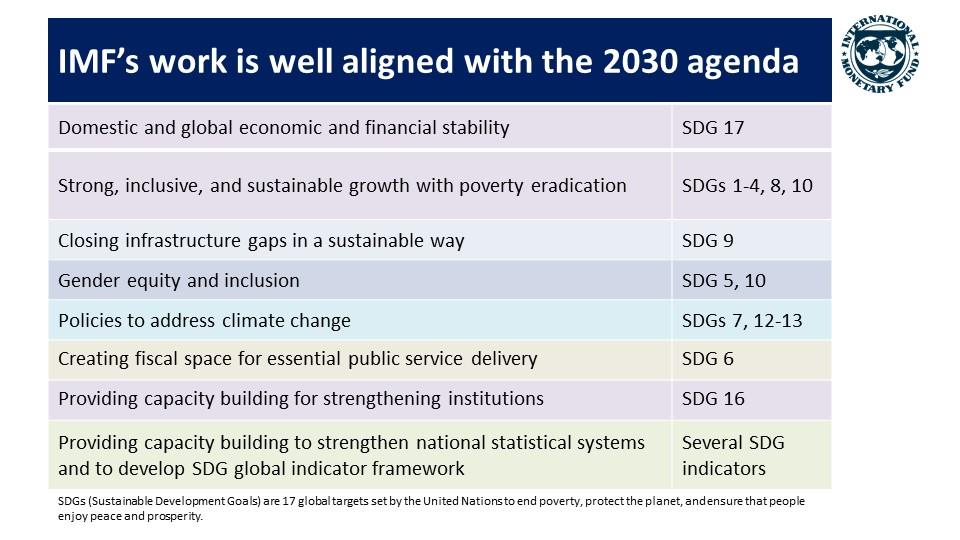July 19, 2017
Versions in عربي (Arabic), 中文 (Chinese), Français (French), 日本語 (Japanese), Русский (Russian), and Español (Spanish)
[caption id="attachment_20651" align="alignnone" width="1024"] Schoolchildren in line in Mali: Reducing the large gap between men’s and women’s education in some low-income states is one of the 2030 goals which IMF advice can address (photo: Stringer/Reuters/Newscom)[/caption]
Schoolchildren in line in Mali: Reducing the large gap between men’s and women’s education in some low-income states is one of the 2030 goals which IMF advice can address (photo: Stringer/Reuters/Newscom)[/caption]
Since the adoption of the United Nation’s Sustainable Development Goals (SDGs) in 2015, we at the IMF have supported countries to reach their goals through policy advice, training, and financial support. Results will accrue over time, and we already see some notable progress.
Our help for countries pursuing their development goals has become more crucial as economic circumstances deteriorated for many countries, including commodity exporting low-income economies: global growth is gaining momentum, but it remains uneven, amid a large drop in commodity prices and rising debt levels.
The IMF’s job is to promote international economic and financial stability and help countries achieve strong, sustainable, and inclusive economic growth. Maintaining economic stability and achieving strong growth are key foundations from which countries can pursue their goals to eradicate poverty, provide decent work and reduce inequality. The IMF also helps countries strengthen their public finances, which in turn provides additional resources for improving public health, education, and infrastructure.
In recent years, the IMF has also given countries policy advice on inequality, gender, financial inclusion, and climate change. Here are some examples of how IMF advice in these fields can contribute to countries’ efforts to reach the development goals:
-
Inequality. Tackling inequality will help countries achieve sustained economic growth. As shown by the IMF’s recent research, higher income inequality leads to shorter growth spells and higher levels of economic instability. In various countries like Guatemala, Malawi, and Myanmar we found that while economic reforms that boost growth can in themselves increase inequality, there are reform design features and complementary measures that can mitigate those effects. For example, we recommended targeted cash transfers and higher spending in agricultural research and development to boost the long-term productivity of poor farmers in Malawi, who otherwise would have lost out on the reduction of agricultural subsidies. The Malawian authorities drew on these recommendations to design last year’s subsidy reform.
-
Gender. Increasing women’s paid work has a significant positive impact on economic growth. That is why the IMF supported Egypt, India, Jordan, and Mali in their efforts to encourage more women to enter the paid workforce. In Mali, for example, we highlighted that the female-male educational gap and the high fertility rate (among the highest in the world) are the main constraints to women entering the paid workforce. Therefore, we recommended more spending on education, training programs for girls and women, and increasing the provision of contraceptives.
-
Financial Inclusion—the provision of access to financial services such as banking to all. In Colombia, Namibia and Nigeria, the IMF gave practical “how to” advice on how to boost financial inclusion. In Colombia, for example, we highlighted the importance of the electronic money license and the introduction of a centralized electronic movable property registry for enhancing financial access for individuals and small enterprises. In Jamaica, following IMF recommendations, the authorities established a financial inclusion council to oversee the implementation of the national financial inclusion strategy.
Climate. Small states are among the most vulnerable to climate change and damaging natural disasters. We are working with the World Bank to help these countries with Climate Change Policy Assessments. These assessments, piloted in the Seychelles and in St. Lucia, advise on climate change adaptation and mitigation policies: to provide not only better disaster response but also reduce risk and be more prepared. They can do this by keeping adequate room in the budget and by creating contingency financial plans, as emphasized by IMF advice. In addition, the upcoming World Economic Outlook looks at the effects of climate on the economic performance of low-income economies.
As the examples show, we at the IMF assist countries to create sustainable economic conditions for carrying out their plans. At this week’s UN High-Level Political Forum 44 countries presented the actions they are taking to achieve the goals, as well as the challenges of measuring success across many different goals. Next year, we will prepare an in-depth assessment of the scope and effectiveness of IMF support for the implementation of the 2030 development agenda.







